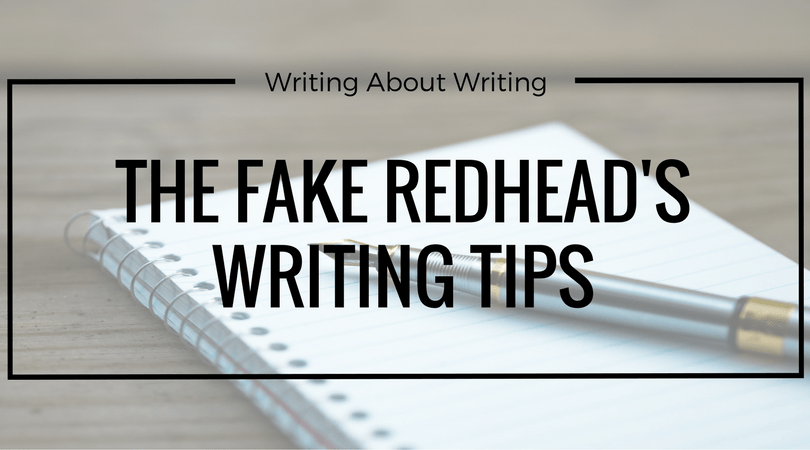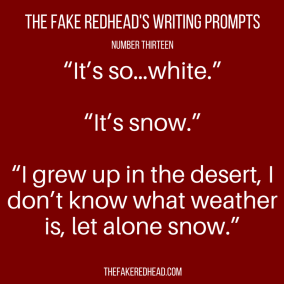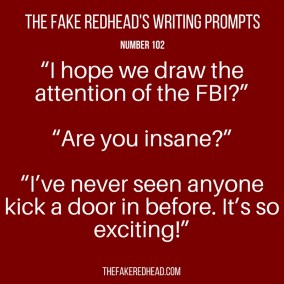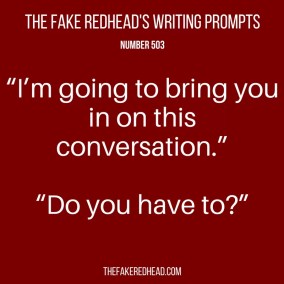Writing Tips | Find Your Next Favorite Book | Prompt Library | Shop The eBooks
Seriously, Just Use Your Character’s Given Name
A few weeks ago (four weeks, if you want to be specific), I wrote about how the lengths you go to name your protagonist (and everyone else in your novel) don’t have to be a traumatic experience.
Need a refresher? Go ahead, this post isn’t going anywhere.
This week, I’m going to talk about why I’m not worried that I used Talya Nightingale’s first name more than 700 times in the fifth draft of the #WhoIsTalyaNightingale manuscript. Doing the math, it comes out to using ‘Talya’ once every 134 words or so.
Now obviously, writing ‘Talya’ once every 134 words WOULD be repetitive and extremely noticeable, but that’s why stories have sentences of varying lengths and scenes that may or may not feature certain characters, and tweaks in the format in order to keep things interesting.
More on story structure another day.
As I write this story, I realize that some of this is going to verge into the category of ‘the fundamentals of writing’, and I should probably have some ‘fundamentals of writing’ type pieces in my Writing Tips library before going into the details, but that’s not how I roll.
So ‘fundamentals of writing’ pieces to come. Get ready for that.
Back to the point, according to the Google, a name is: a word or set of words by which a person, animal, place, or think is known, addressed, or referred to.
And because you went through all that angst and misery to figure out what to name you’re character, don’t shy away from using it in your novel. (I’m assuming, because that’s what I went through, so that must be how it always is, right?)
That’s another level of stress that you don’t need. You’re already trying to cram writing somewhere in the realm of 80,000 to 100,000 words into your busy life, you’ve obviously got more than enough on your plate.
So hit the Continue Reading button for my two favorite reasons why it really is okay to use their name in your manuscript, so seriously don’t stress about it.
1 They’re Invisible
I’m listing this as the first reason because it’s pretty much the biggest reason why you shouldn’t worry about whether or not to use a character’s name in your manuscript.
Now first I’d like you all to note, that when I refer to Talya Nightingale as Talya in my manuscript, that’s because that is what Talya goes by when she interacts with other characters. If you have a character, say, Raven, who has a nickname like, say, Birdie, you’re still going to use Raven’s given name when writing from Raven’s perspective. But if you’re writing from the perspective of a character who calls Raven, Birdie, then that’s also how you would reference them.
Make sense? Awesome.
And now, after going on that ramble about names, I’m going to say it again: names are invisible.
When you’re readying a book, you’re there for the STORY. The plot! The adventure! The from-out-of-nowhere surprises! The not-so-sober shenanigans! The near-death experiences! That one time one character punched another in the face and the video ends up on TMZ!
Sure, you need to establish the who’s who of the main cast, the secondary characters, and those random characters who get name-dropped or vaguely referenced once and (spoiler alert!) end up appearing and having major roles in the series’ latter books.
Foreshadowing is awesome. Two thousand words of ramble on that to come.
But after you figure all that out, as you move through whatever story you read, your brain focuses less on worrying about who’s who, and focuses more on the content.
You the type to shift POV’s? First of all, save your POV shifts for scene breaks or new chapters, and also make sure that when you do, you immediately establish whose point of view we’re now following.
The magic behind all this is that the names don’t stand out anymore once you know who’s who. Talya’s name can show up multiple times on a page, but it’s not going to take you out of the story. If anything, it’s going to ground your readers to that they can focus on the plot. Like, say, when Talya’s GPS glitches and she ends up in a weird little town that doesn’t have much by way of mid-day traffic.
But if you find your reader, critique partner, parents, BFF, etc., is focusing on picking out names and tracking who does what in the novel, then it probably means that you have to make sure you go back and clarify.
And how do you clarify?
BY USING THEIR NAMES.
2 Names Are Crucial For Good Dialogue (And Good Writing In General)
“Someone did not think this through,” the blonde said.
Now, if you’re having a conversation with your friend (who happens, in this one instance, to be a blonde), do you think of them as the blonde when you’re talking to them?
Of course you don’t. No one thinks of their friends, acquaintances, random people on the streets, their boss, arch enemy, etc., by their hair color or other defining features.
Unless you do?
But usually you don’t.
You think of them by their name.
If you don’t know their name, then maybe you DO refer to someone as their defining feature, but here’s the thing: you don’t always think of them by their defining features. You will, eventually, come to think of them by their name when you find that out, or by whatever label your brain attributes to them, like Crazy Hobo Who Panhandles On The Corner Of Fourth And Mill.
So that said, the stronger sentence would read:
“Someone did not think this through,” Talya said.
That way, you have made is abundantly clear that it was Talya, not any other blonde in your cast of characters, who said that sentence.
Let’s take a look at this conversation:
The brunette runs and hand through her hair, sighs, “I don’t know how we’re going to make it out of this.”
“Well we’re not going to make it out at all if you don’t stop whining and help me with this door,” the redhead snaps as she yanks at the handle, glowering when it doesn’t budge.
Sure, you may know and have established that the brunette’s name is Clara and the redhead’s name is Amy, but it takes more effort to describe a character this way (and is also very show-y instead of tell-y, which we’ve long since established is no good) and you’re better served using their names and establishing their traits another way.
So the stronger conversation would read like this:
Clara runs a shaking hand through her hair and sighs, “I don’t know how we’re going to make it out of this.”
“Well we’re not going to make it out at all if you don’t stop whining,” Amy snaps, her tangled hair matted with sweat that turns it to the color of blood, and she tugs at the door handle again, glowers when it doesn’t budge. “Get off your butt and help me with this.”
See, when you do what I just did, not only are you establishing the conversation and the characters, but you’re showing the gravity of the imaginary situation that they’re in.
(I’m sure at some point the Doctor will swoop in and save the day, but that’s another story for AO3.)
Here’s another thing we don’t do in real life, and therefore shouldn’t do in our writing:
“Oh my god Lily, you will never guess who pissed me off today.”
“Let me guess, Emma. Does his name rhyme with ‘horrible’?”
Bearing in mind that Lily and Emma have already been established, it is very rare that, when you’re having a casual conversation with someone, that you’re going to include their name in whatever you’re going to say.
Take a second, and think about it.
So the stronger text would read:
“Oh my god, you will never guess who pissed me off today,” Emma says as she barges into Lily’s office and flops down on the lone chair crammed between the filling cabinet and the door.
Lily barely looks up from the report she’s working on, “Does his name rhyme with ‘horrible’?”
Now, there’s no reason not to use their name in the spoken part of the conversation if, say Lily is doing something stupid and Emma says something along the lines of, “Damn it Lily! Stop being an idiot!”
It’s emphasis, and emphasis, like curse words, should be used sparingly. That way it stands out, positively, and your readers can understand the tone you’re trying to convey.
So the moral of the story is use the names, use them the right way, and don’t stress about it.
That’s where editing comes in.
Check Out The Last Writing Tip Check Out The Next Writing Tip
Shop The eBooks | Find Your Next Favorite Book
Want more prompts? Check out the Prompt Library.
Do you have a question about writing that you want me to answer? Leave a comment below! (I’m also answering questions in the Facebook group. Hop on over and say hi!)






